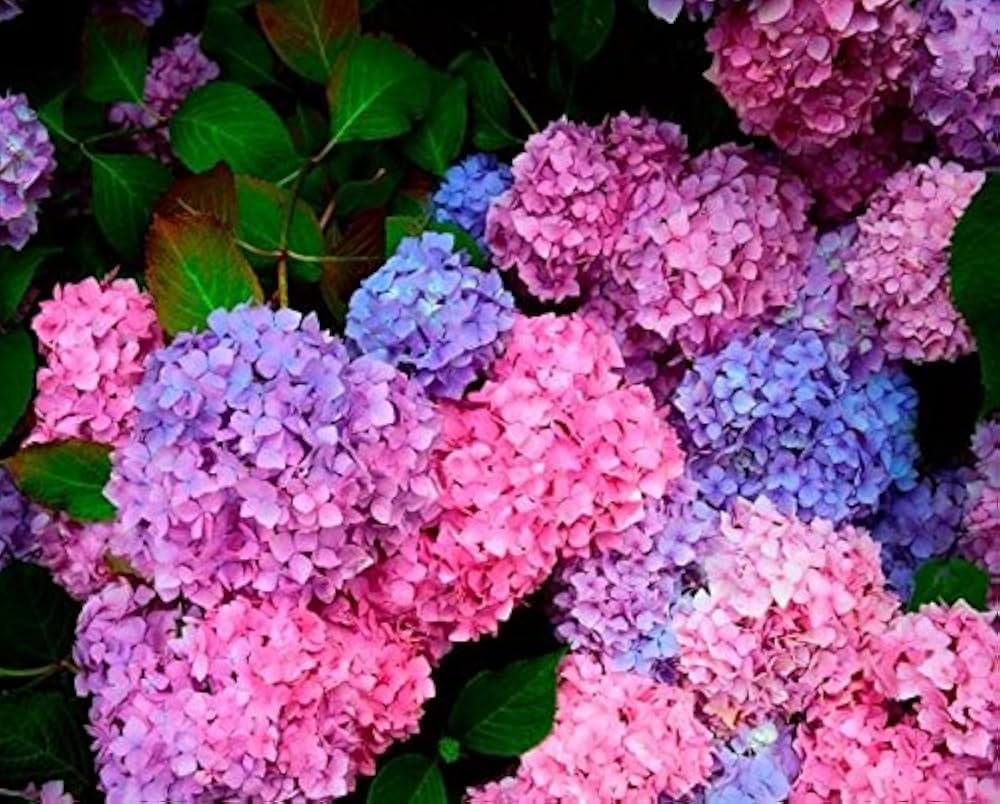Hydrangea Hydrangea macrophylla flower seeds for vibrant landscape garden and backyard planting
Couldn't load pickup availability
Description
Hydrangea Seeds
Characteristics and Uses of Hydrangea Plants
Hydrangeas are stunning flowering plants known for their large, vibrant blooms and lush foliage. These versatile plants come in a variety of colors, including blue, pink, and white, depending on the soil pH, making them a favorite among gardeners. Hydrangeas are often used in ornamental gardens, as cut flowers, and in landscape design, providing a beautiful display throughout the summer months. As a non-GMO option, these seeds are perfect for gardeners who appreciate natural growing practices and wish to cultivate these exquisite plants in their own spaces.
Growing Conditions for Hydrangea Plants
- Soil Type: Prefers well-draining, rich, and moist soil with plenty of organic matter.
- Sunlight: Thrives in partial shade to full sun, requiring at least 4-6 hours of sunlight daily.
- Temperature: Best suited for temperate climates, ideally between 60°F and 75°F for optimal growth.
Planting Tips for Hydrangea
- Seed Preparation: Soak seeds in water for 24 hours before planting to enhance germination.
- Planting Depth: Sow seeds at a depth of about 1/4 inch in well-prepared soil.
- Spacing: Space plants 3-4 feet apart to allow for their mature size and proper air circulation.
Watering Instructions and Tips
- Initial Watering: Water thoroughly after planting to establish strong roots.
- Ongoing Care: Keep the soil consistently moist but not waterlogged; allow the top inch of soil to dry out between waterings.
- Mulching: Apply a layer of mulch around the base to retain moisture and suppress weeds.
Growing Zones
Hydrangea plants are suitable for USDA zones 3-9 and can thrive in global zones with similar conditions, making them a versatile choice for many gardeners.
Key Benefits & Uses
- Non-GMO seeds ensure a natural growing experience.
- Produces stunning flowers that enhance the visual appeal of gardens and attract beneficial pollinators.
- Low maintenance and hardy, making them ideal for both novice and experienced gardeners.
Best Uses in the Garden & Landscape
- Ideal for flower beds, providing a vibrant display of blooms throughout the summer.
- Great for borders and mixed plantings, adding charm and texture to any setting.
- Can be used in cut flower arrangements, perfect for creating beautiful bouquets.
Conclusion
Choosing Hydrangea seeds from bijaseeds means investing in a beautiful and resilient plant that enhances your garden's aesthetic and ecological value. As a big, trusted name in the seed world, bijaseeds offers a wide range of high-quality, non-GMO varieties to gardeners everywhere.
FAQ
How do I grow Hydrangeas from seeds?
To grow Hydrangeas from seeds, soak the seeds in water for 24 hours before planting. Sow them at a depth of 1/4 inch in well-draining soil and water thoroughly after planting.
When is the best time to plant Hydrangea seeds?
The best time to plant Hydrangea seeds is in early spring after the last frost date, as they thrive in warmer temperatures and will grow actively during the growing season.
Are Hydrangea plants difficult to grow?
Hydrangea plants are relatively easy to grow, making them suitable for gardeners of all levels. With proper care regarding sunlight, soil, and watering, these plants can thrive and provide stunning blooms throughout the growing season.



